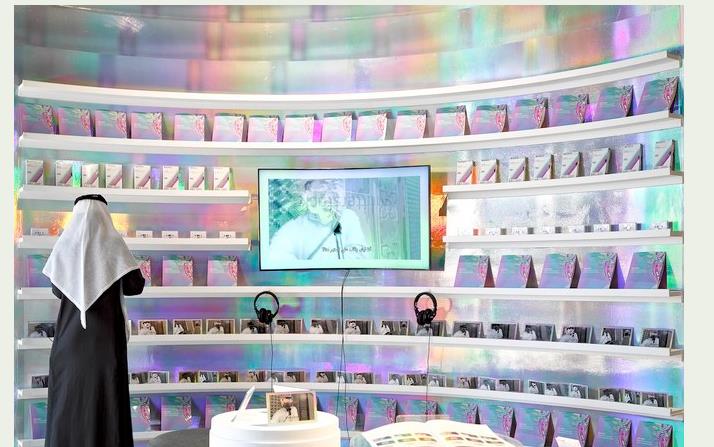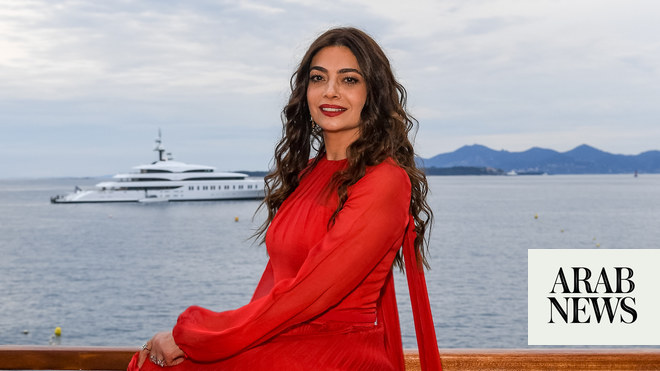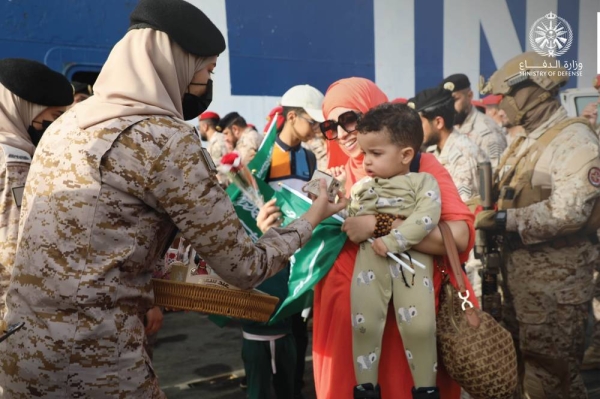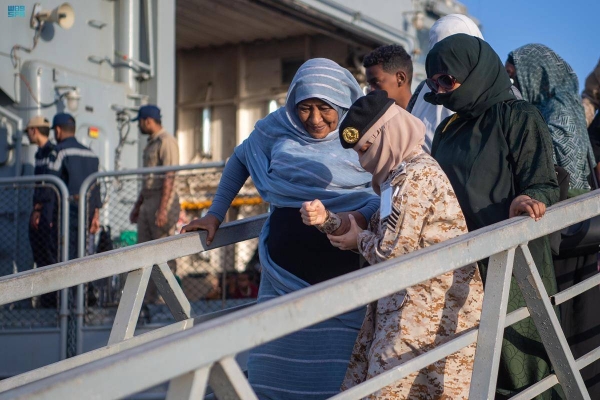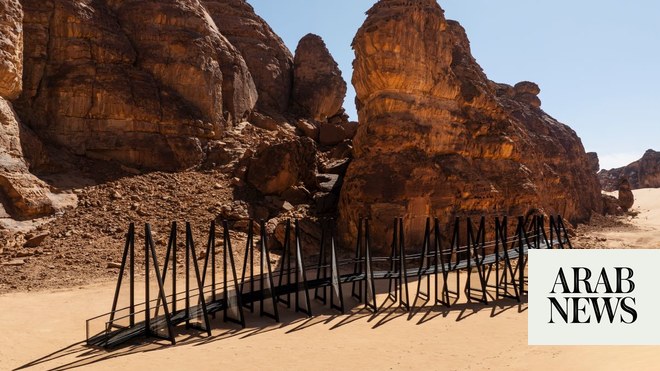
DUBAI: For as long as she can remember, the conceptual Saudi artist Filwa Nazer — who was born in Swansea, Wales, in the 1970s but grew up in the Kingdom — has always loved art. She says that she spent her time as a youngster drawing, painting, writing notes, and reflecting on life in a Saudi Arabia which, back then, lacked art education. “As a young artist, you don’t realize that all the challenges you face eventually inform your creative process,” Nazer tells Arab News.
For the latest updates, follow us on Instagram @arabnews.lifestyle
In the 1990s, Nazer moved to Milan, where she studied fashion design and later trained with the acclaimed Italian fashion designer Gianfranco Ferré.
“He was quite an intimidating character, so I was a little bit in awe of him, but I was fascinated by the fact that he was an architect originally. His white shirts were quite structural,” says Nazer.
Saudi artist Filwa Nazer — who was born in Swansea, Wales, in the 1970s but grew up in the Kingdom — has always loved art. (Supplied)
At the Ferré company, she was particularly drawn to the archival department, where all kinds of vintage garments were stored. She also learned about embroidery. Those experiences feed into her recent work, which focuses heavily on fabrics, but with an emotional touch.
There is something sentimental about Nazer’s artwork, which is inspired by emotions, spaces, life transitions and memories. “For me,” she says, “the work always comes from a personal place.”
Here, Nazer talks us through six significant works, from a large-scale installation in the desert to an intimate fabric piece addressing women’s bodies.
‘The Skin I Live In’
This installation from 2019 was one of the first ever textile works that I made, setting me on this journey of working with textiles. It’s two meters high and looks like a big skirt from the front. Inside, there are layers of embroidered muslin cotton, which is cut according to the floor plans of my flat in London. Covering the muslin is a layer of green polyethylene — a type of plastic mesh that you see in construction sites. I use these materials in a conceptual and symbolic way. I wanted to see if I could use sewing as a language and create landscapes of emotions through stitching. This work was about a particular time when I needed healing and protection, and that space provided a container for me to explore all of that.
‘Preserving Shadows’
This was part of Desert X AlUla this year. I’d never done something on this scale before — and in such a challenging environment like AlUla desert, which made me feel blocked. But I like to get out of my comfort zone and see what can happen if I work in a different way. Through my research, I came across this paragraph about plants in the desert and the supernatural. Suddenly, there was a lightbulb in my head and I started thinking that my blockage and discomfort in this environment could become my concept. I wanted to create a journey that is about a moment of transition; you walk through shadows and, as you walk, you are ascending and the shadows recede until you reach the end. It’s a journey of metaphorically overcoming darkness.
‘The Hands Want To See, The Eyes Want To Caress’
This body of work was shown in an exhibition called “Saudi Modern” in 2021. A few artists were commissioned by Bricklab to create artworks that responded to a particular building from the modernist era of architecture in Jeddah. I created these five pieces as my response to a private residence, the Bajnaid House, in Al-Kandarah area. It was the epitome of modernist, trendy Jeddah in the Fifties and Sixties. It’s completely lost that status now. The works kind of explore what happens to a space or a house as it degrades — as it’s abandoned. Some of these pieces are about how I connected to the aesthetics of the house and the other pieces, the ones with the wood and fabric, are about how this house made me feel and how my body reacted to it. It asks: “Is a discarded house not attractive anymore? Or do you find beauty in the way it is now?”
‘Five Women’
This was a very special series. It was commissioned for the first edition of the Diriyah Biennale in Riyadh in 2021. It literally tells five stories of five Saudi women from my generation — women that I have spoken to privately and anonymously. Each woman told me a story and gave me a dress that related to one particular story about an event that changed this woman’s relationship with her body. The stories were about pain, coming of age, and the flamboyancy of showing off beauty in society. This work was also shown in the Lyon Biennale in 2022.
‘Missing A Rib’ (2019)
This 2019 piece is about my house in Jeddah. It’s a transparent sculptural piece, within it hangs a structure that resembles a broken rib cage. Prior to the conception of this work, I injured my ribs and was in bed for such a long time. Besides alluding to the symbolism of Adam and Eve, with Eve being created from Adam’s rib, it also connects to the theme of exploring spaces under the influence of patriarchy. The white strips (a type of thread-pulling technique decorating the hemlines of undergarments of men in Saudi) are a metaphor for masculine energy controlling a woman’s space.
‘Topoanlysis’
This is one of my latest works that I made for Selma Feriani Gallery in 2023. It’s part of a seven-piece series that explores patterns of personal garments in relation to personal living spaces. You can see the outline of a floor plan. The red patches are made of layered stitching. I revisited that kind of abstract stitching that I use symbolically as landscapes of emotion. Nevertheless, when you look at it; the duality of it gives it the feel of a body or a chest. The green that I always use is symbolic of Saudi Arabia, so it links to society and environment. It’s quite philosophical in exploring space, but also in relating to emotions, memories and socio-political influences.




